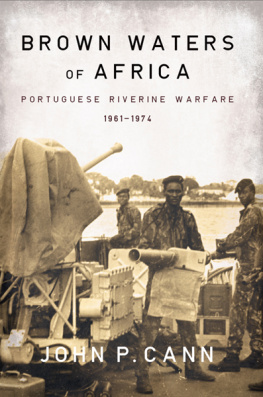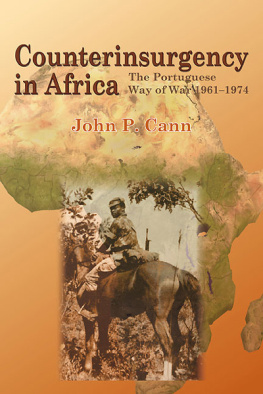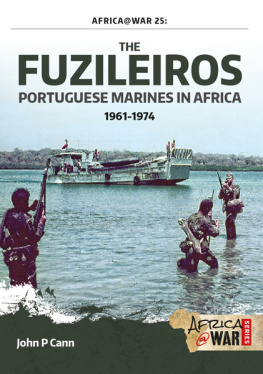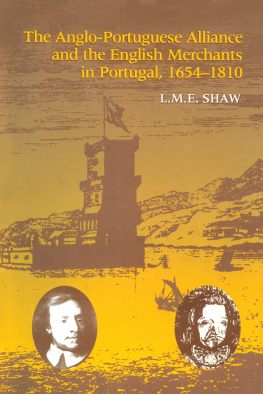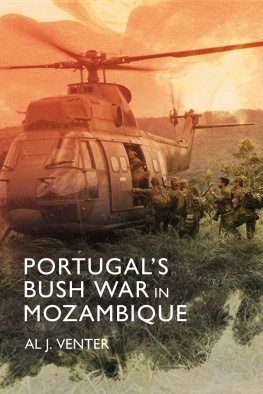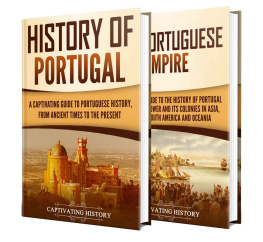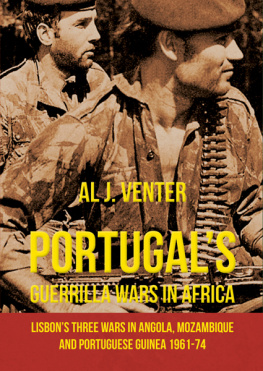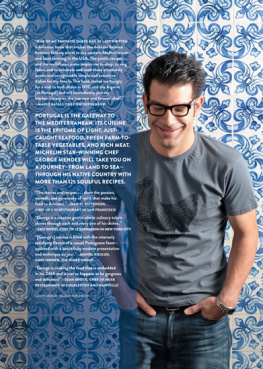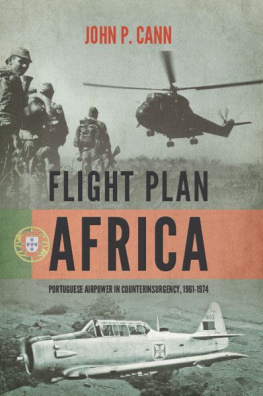Helion & Company Limited
26 Willow Road
Solihull
West Midlands
B91 1UE
England
Tel. 0121 705 3393
Fax 0121 711 4075
Email:
Website: www.helion.co.uk
Published by Helion & Company 2013
Designed and typeset by Farr out Publications, Wokingham, Berkshire
Cover designed by Euan Carter, Leicester (www.euancarter.com)
Printed by Lightning Source Ltd, Milton Keynes, Buckinghamshire
Text and maps John P. Cann 2007
Photographs as indicated in the list of illustrations
Front cover: African fuzileiros in Guin. Authors photo.
Rear cover: Fuzileiros aboard LFG Sagitario (P 1131) in the Cacheu River. Photograph
courtesy private collection of Admiral Nuno Vieira Matias.
ISBN 978-1-908916-56-3
EPUB ISBN: 978-1-909982-47-5
British Library Cataloguing-in-Publication Data.
A catalogue record for this book is available from the British Library.
All rights reserved. No part of this publication may be reproduced, stored in a
retrieval system,or transmitted, in any form, or by any means, electronic, mechanical,
photocopying, recording or otherwise, without the express written consent of Helion &
Company Limited.
For details of other military history titles published by Helion & Company Limited
contact the above address, or visit our website: http://www.helion.co.uk.
We always welcome receiving book proposals from prospective authors.
About the author
John P. Cann is a Research Fellow and retired Professor of National Security Studies at Marine Corps University, a former member of the research staff at the Institute for Defense Analyses, and Scholar-in-Residence at the University of Virginia. He earned his doctorate in War Studies at Kings College London in 1996, published Counterinsurgency in Africa in 1997, Memories of Portugals African Wars, 19611975 (ed.) in 1998, The Brown Waters of Africa in 2008, and numerous articles on small wars over the years. He is a retired naval captain and flight officer specializing in open ocean reconnaissance aviation and served in a variety of aviation assignments, including command. He has been awarded the Portuguese Navy Cross Medal and the Medal of Dom Afonso Henriques for his writings on conflict in Lusophone Africa.
For my dear friend
VICE ADMIRAL ANTNIO EMLIO FERRAZ SACCHETTI
Contents
List of photographs
List of maps
Leste (Lisbon: Prefcio, 2002), 11.
List of tables
Preface
T he origin of my interest the Portuguese campaigns in Africa began during the period between 1987 and 1992. It was during this time that, as a naval officer, I was assigned as an occasional augmentee to the staff of the NATO command, Commander-in-Chief Iberian Atlantic Area, in Oeiras, Portugal, for its various maritime exercises. All of the Portuguese officers with whom I worked had fought in Africa during the Portuguese campaign to retain its Empire between 1961 and 1974. The stories of their experiences during this lengthy thirteen-year war fascinated me, and even today it remains a conflict that is not well known or understood outside of Portugal and of which little has been written in English. My subsequent assignments generated an interest in insurgency, and as a consequence, I naturally returned to the Portuguese African campaigns when I had the opportunity to do so.
My first book, Counterinsurgency in Africa: The Portuguese Way of War, 19611974, was originally published in 1997 and gave a broad overview of the war. It focused largely on the land campaign, as people live ashore, and such wars are fought for the loyalty of the population. There are, however, two other important mediums in the conflict, the naval and air dimensions. Each has its own perspective and merits an account.
This volume addresses the naval component in counterinsurgency and specifically traces how the Portuguese Navy anticipated the conflict, prepared for it, and fought on its rivers in Africa during this war. It explores the imaginative thinking behind the development of the Portuguese brown water navy and shows how this conceptualization led to the successful development of a well-considered plan. It called for the integration of a trained and competent cadre of sailors and marines or fuzileiros and a blend of equipment to execute national and theater strategy in support of the land effort in neutralizing the insurgent threat. An important ingredient was the elasticity of the plan, a flexibility that was able to accommodate needed adjustments in both the construction and employment of the riverine launches and the necessary modifications in the training and deployment of personnel to adjust to the enemy, the fighting environment, and the constriction on resources. In the end, the navy accomplished exactly what it had originally sought to achieve. The weaknesses in its use can be attributed to the primacy of the army and a lack of understanding on the part of its leaders as to how a riverine navy can be most effectively used to support a land campaign in counterinsurgency. In the two theaters where variations of this disconnect occurred, Guin and Mozambique, there were difficulties in containing the insurgent advance. In the case of Angola, where naval operations complemented the land campaign well, success was clearly achieved, and the nationalist movements were completely stalemated. The depth and thoughtfulness of Portuguese Navy thinking in building and deploying a substantial riverine capability in the hostile remoteness of a distant continent remains a relevant model. It is one that continues to influence the shape of current and future navies that want to move inshore where new enemies hide and to seize the opportunity to influence events.
Acknowledgments
T his book would not have been possible without the unstinting support of Admiral Nuno Gonalo Vieira Matias, former Chief of Staff of the Portuguese Navy, and his successor, Admiral Francisco Antnio Torres Vidal Abreu, for which I am most thankful. They made virtually every resource at their disposal available to me and for that I am most appreciative. Rear Admiral Jos Lus Ferreira Leiria Pinto and his predecessor, Rear Admiral Lus Joel Alves de Azevedo Pascoal, both Presidents of the Cultural Commission of the Navy and Directors of the Central Library of the Navy, provided their personal support and took an active interest in the project. I am indebted to their very professional archive and library staffs and most particularly to Captain Jos Antnio Rodrigues Pereira, Doctor Isabel Beato and Comandante Ferreira Pinto, all of whom spent many hours helping me with my research and gave generously of their time. Additionally, I am indebted to Rear Admiral Lus Augusto Roque Martins, the Director of Revista da Armada for his advice and support, and to Comandante Lus Jorge Rodrigues Semedo de Matos for his help on fuzileiro history.
My deep appreciation goes to Vice Admiral Antnio Emlio Ferraz Sacchetti, former President of the Academia de Marinha, who took a personal interest in the success of this volume from its inception until his untimely death. His hospitality and support proved indispensable.
Vice Admiral Antnio Carlos Rebelo Duarte, Director of the Instituto Superior Naval de Guerra, and his predecessor, Vice Admiral Carlos Magalhes Queiroz, were most helpful in making the resources of the Instituto available.
This is a story that could not have been told without the assistance and interest of the many veteran brown water sailors who took time from their busy schedules to share their experiences. I am indebted to Vice Admiral Jos Deolindo Torres Sobral and his friend of many years Comandante Raul Patrcio Leito, who spent some considerable time describing operations on Lake Niassa. Rear Admiral Joaquim Manuel Barreiros Espadinha Galo and the former Governor of Niassa, Carlos Augusto Pereira da Costa Matos, likewise provided a valuable appraisal of life on the Lake. With respect to Guin, I owe much to Rear Admiral Luiz Casimiro de Mesquita Dias for his reflections on the naval shipyard there, to Vice Admiral Jos Alberto Lopes Carvalheira and to
Next page
